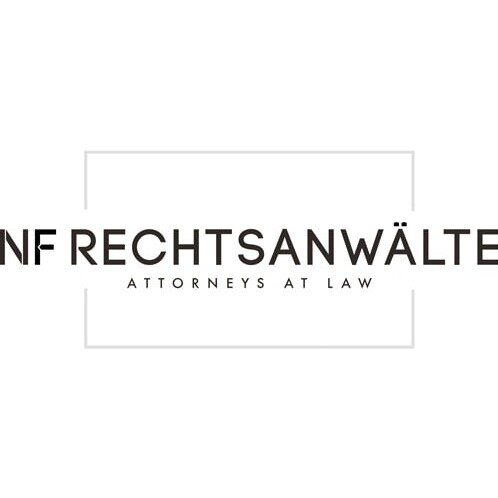Best Corporate Governance Lawyers in Vienna
Share your needs with us, get contacted by law firms.
Free. Takes 2 min.
List of the best lawyers in Vienna, Austria
About Corporate Governance Law in Vienna, Austria
Corporate governance refers to the system of rules, practices, and processes that direct and control companies. In Vienna, Austria, corporate governance is a vital aspect of business operations, ensuring that corporations are run efficiently, transparently, and in the best interests of all stakeholders. It covers topics such as board responsibilities, compliance, shareholder rights, risk management, and ethical conduct. Corporate governance laws in Austria are influenced by European Union directives and Austrian national legislation, and they apply to a wide range of entity types, including public corporations, limited liability companies, and partnerships.
Why You May Need a Lawyer
Corporate governance can be complex to navigate, especially for individuals or businesses unfamiliar with local laws and practices. Common situations where legal help may be required include:
- Setting up or restructuring a company to comply with local governance requirements
- Drafting or revising articles of association and corporate bylaws
- Advising on the roles and duties of board members and executives
- Resolving shareholder disputes or conflict of interest cases
- Ensuring compliance with regulatory disclosures and reporting obligations
- Preparing for or responding to audits or governmental investigations
- Implementing whistleblower policies and codes of conduct
- Assisting with mergers, acquisitions, or other major corporate transactions
- Representing clients in litigation related to breaches of governance standards
- Handling issues of director liability or breaches of fiduciary duties
In these situations, a lawyer with expertise in Austrian corporate governance can provide insightful advice and help safeguard your interests.
Local Laws Overview
Austrian corporate governance is governed by both statutory law and codes of best practice. Key legislation includes the Austrian Stock Corporation Act (Aktiengesetz - AktG), the Austrian Limited Liability Companies Act (GmbH-Gesetz), and various European Union directives. The Austrian Corporate Governance Code provides additional non-binding recommendations, especially relevant to listed companies.
Important local requirements involve:
- Clear separation of management and supervision, often through two-tier board structures
- Mandatory disclosure of significant company information
- Protection of shareholder rights, including information rights and voting in general meetings
- Strict rules on directors' fiduciary duties and liabilities
- Auditor independence and financial reporting standards
- Attention to sustainability and corporate social responsibility
Non-listed companies generally have more flexible governance requirements. However, they must still comply with statutory duties related to transparency, minority shareholder protections, and proper management conduct.
Frequently Asked Questions
What is the structure of a typical Austrian company in terms of governance?
Public companies often use a two-tier structure with a management board and a supervisory board. Private limited companies might have a simpler governance model but still require directors and, in some cases, supervisory boards.
Is the Austrian Corporate Governance Code mandatory?
The Code is voluntary for non-listed companies but is considered binding on a comply-or-explain basis for listed companies in Austria.
What are the main duties of company directors in Vienna?
Directors must act in good faith, with the care of a prudent businessperson, and in the company’s best interests. They have specific duties on disclosure, conflict of interest, and legal compliance.
How are shareholders' rights protected under Austrian law?
Shareholders can attend and vote in general meetings, receive information, challenge decisions, and in some cases bring derivative actions against directors for breaches of duty.
What transparency requirements exist for Austrian companies?
Companies must file annual financial statements and, if listed, adhere to detailed disclosure obligations regarding financial health, governance practices, and significant transactions.
Can a minority shareholder challenge the actions of the board?
Yes, minority shareholders have the right to challenge board decisions in certain cases, particularly if those actions violate the law or the company’s articles of association.
Are there gender diversity requirements for boards in Austria?
Certain listed and large companies must meet minimum gender quotas on supervisory boards. These rules aim to improve diversity at the leadership level.
What are the consequences of breaching corporate governance duties?
Directors and officers may face civil liability, fines, and, in severe cases, criminal penalties for breaches such as fraud, mismanagement, or failure to comply with statutory requirements.
Does Austrian law require an audit committee?
Listed companies must establish audit committees to oversee financial reporting, auditor independence, and internal controls. Requirements may vary for private companies.
How often must company meetings be held?
General meetings must be held at least annually, but additional meetings may be called as needed, especially in connection with significant corporate events or issues.
Additional Resources
If you are seeking further information or professional support, the following resources may be useful:
- Austrian Federal Ministry of Justice - Responsible for commercial and company law regulations
- Austrian Financial Market Authority (FMA) - Regulates the securities markets and corporate transparency
- Austrian Chamber of Commerce (WKO) - Provides information and guidance for businesses on corporate governance matters
- Austrian Institute for Corporate Governance - Offers research, best practice recommendations, and educational materials
- Vienna Stock Exchange - Provides governance guidelines specifically for publicly traded companies
Next Steps
If you need legal assistance with corporate governance matters in Vienna, Austria, consider the following steps:
- Assess your specific needs, whether setting up a company, addressing governance disputes, or ensuring compliance with new regulations
- Gather all relevant corporate documents and information, such as articles of association, shareholder agreements, and prior board meeting minutes
- Contact a qualified Austrian lawyer or law firm that specializes in corporate law and governance
- Prepare to discuss your situation openly and ask for an outline of potential solutions, timelines, and costs
- If your issue involves regulatory authorities, consider seeking guidance or mediation from local business chambers or industry associations
Proactive planning and expert legal advice can help your company avoid common pitfalls and operate confidently within the framework of Austrian corporate governance law.
Lawzana helps you find the best lawyers and law firms in Vienna through a curated and pre-screened list of qualified legal professionals. Our platform offers rankings and detailed profiles of attorneys and law firms, allowing you to compare based on practice areas, including Corporate Governance, experience, and client feedback.
Each profile includes a description of the firm's areas of practice, client reviews, team members and partners, year of establishment, spoken languages, office locations, contact information, social media presence, and any published articles or resources. Most firms on our platform speak English and are experienced in both local and international legal matters.
Get a quote from top-rated law firms in Vienna, Austria — quickly, securely, and without unnecessary hassle.
Disclaimer:
The information provided on this page is for general informational purposes only and does not constitute legal advice. While we strive to ensure the accuracy and relevance of the content, legal information may change over time, and interpretations of the law can vary. You should always consult with a qualified legal professional for advice specific to your situation.
We disclaim all liability for actions taken or not taken based on the content of this page. If you believe any information is incorrect or outdated, please contact us, and we will review and update it where appropriate.
















